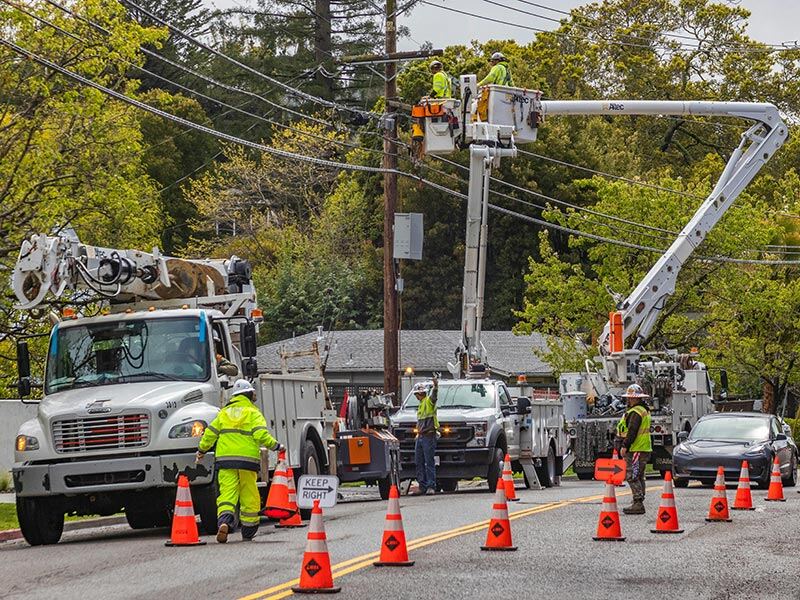
Having recently spent time with some of our customers, it was wonderful to hear how much they have benefited from transforming their complex and often manual processes with our platform. Whether it was by saving $3000 in paper a month or being able to schedule a large mobile service team much further in advance, it was clear Field Squared has become an integral part of their daily operations.
Here are some of the things that our customers look for when choosing an Enterprise Field Service Automation Platform:
1. Why ‘Enterprise’?
Well, as one of our customers told us, they struggled to find a platform that was not made for small business needs, such as scheduling plumbers or installing internet routers. They deal with repairs and maintenance on utility infrastructure networks; sometimes, even locating those assets can be challenging. So, finding a supplier that understood their business and offered a platform that catered to their more complex needs was of imperative importance.
2. Integrated Management Systems
Typically, our customers require more than just a simple field service management platform. They often service complex assets, have complex processes or data input requirements, and have a large mobile workforce. So, a platform that combines field service management, enterprise asset management, and mobile workforce management into a unified system is crucial. This integration allows for a holistic view of operations, ensuring that all components, from dispatch to asset tracking, work seamlessly together. It eliminates the need for multiple disjointed systems, reducing complexity and potential errors.
3. Advanced Mobile Capabilities
Field technicians’ ability to access and input data directly from the field via mobile devices is a game-changer. Platforms should offer robust mobile applications that support real-time data entry and access to work orders, schedules, and customer information. Look for features like offline access and customizable mobile forms that ensure technicians can work efficiently, even in remote or low-connectivity areas.
4. Customer Communication and Satisfaction
Providing a high-quality customer experience is paramount for all our customers. Platforms should facilitate real-time communication between field technicians and customers, providing updates and notifications about service statuses. This capability helps build transparency, trust, and satisfaction, as customers are informed throughout the service process.
5. Geospatial Asset Management
Effective management of widespread assets requires precise geospatial tracking capabilities. Platforms that offer detailed mapping and geolocation features enable better planning and deployment of field resources, ensuring that assets are efficiently managed and serviced. This is particularly important for organizations with assets spread across large geographic areas.
6. Scalability and Configurability
No field service organization is exactly the same, so configuring a platform easily to their needs was consistently cited as extremely important for our customers. Although many originally used our experts to help them with the initial setup, several have become extremely proficient and now create their workflows and forms. As companies grow, their field service management needs may evolve. Therefore, it is important to have a platform that could scale and evolve with them, offering additional capabilities or integrations with other systems like ERP or CRM solutions.
For example, Autumn Potter, Operations Manager at National Metering & Technical Services, notes, “The configurability and flexibility of Field Squared are great for us because they allow us to give our customers what they want. “We have a different form for each specific job, such as meter audits, meter exchanges, meter data collection, and so on.”
Conclusion
As always, I learned much from our customers about how they use our platform and its role in their daily operations. It was fascinating that while some of their requirements were consistent—like scalability and configurability—how they used the platform and the most important feature or capability differed according to their business. Therefore, selecting the right Field Service Automation Platform is critical for field service companies aiming to streamline their operations and improve service delivery. By focusing on these key features, VPs of Operations can ensure they choose a solution that meets their current needs and can adapt to future challenges. A well-chosen platform will transform complex field service operations into more manageable, efficient, and customer-focused activities, ultimately leading to greater operational success and customer satisfaction.
Download our Free Buyer’s Guide to Field Service Automation Software for more information.


